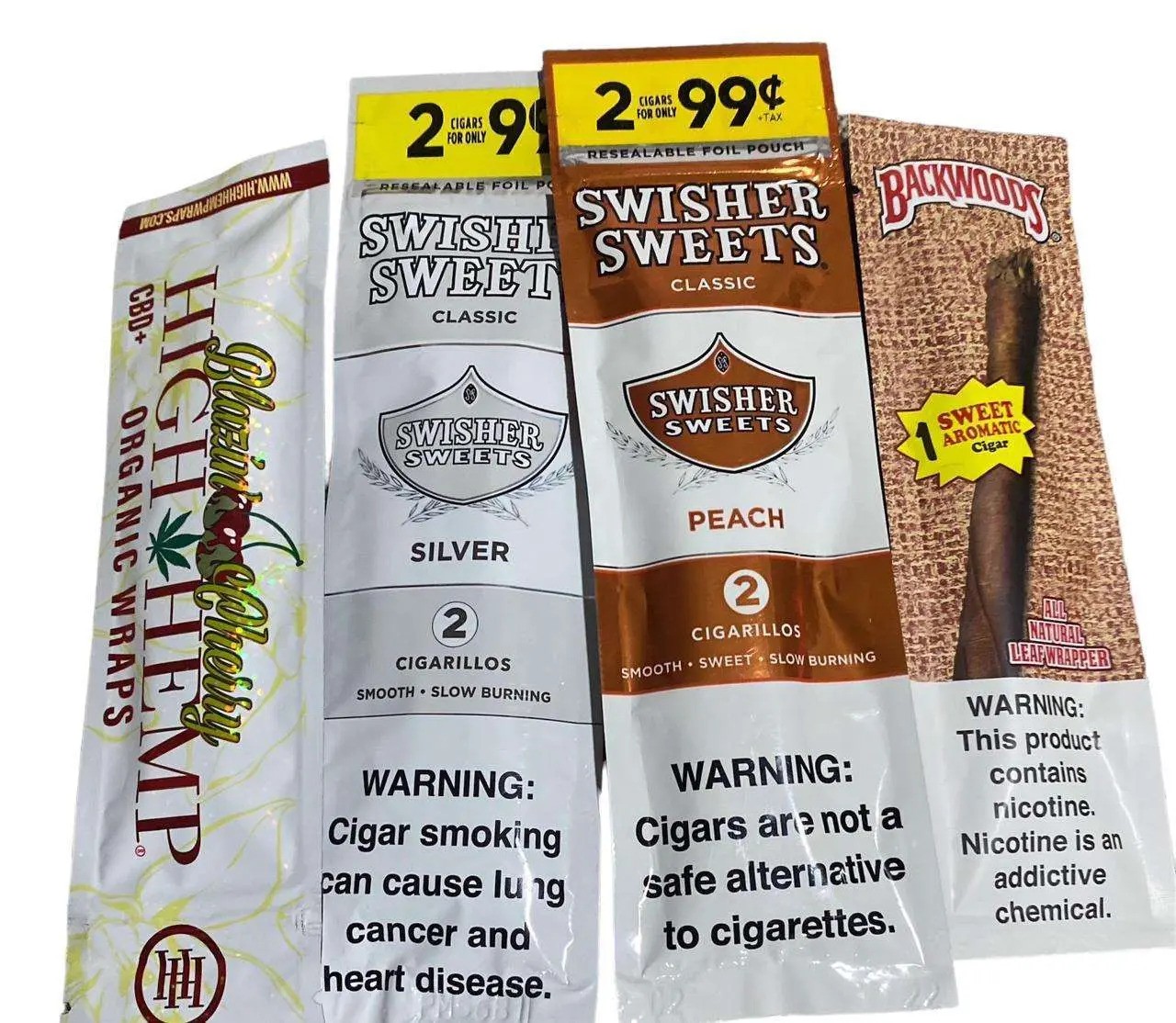Ever wonder how your favorite Swisher Sweets come to life? These iconic little cigarillos have become a go-to for casual smokers, thanks to their smooth draw, sweet flavor, and affordable price tag. But behind every puff lies a fascinating process that combines modern machinery with age-old tobacco craftsmanship.
Let’s peel back the curtain and take a behind-the-scenes look at how Swishers are made—from tobacco leaf to that final foil-wrapped finish.
Table of Contents
- A Quick Introduction to Swishers
- What Makes Swishers Unique
- Where the Tobacco Comes From
- Tobacco Curing and Aging
- Tobacco Blending: The Secret Sauce
- Flavor Infusion Process
- Swisher’s Signature Wrapper Leaf
- Machine-Made Magic: Rolling the Cigarillos
- The Tipping Process: Plastic vs. Wood Tips
- Quality Control Checks
- Packaging and Sealing
- Flavored Varieties & Batch Separation
- How Swishers Stay Fresh
- Sustainability Practices
- Final Thoughts
- FAQs
1. A Quick Introduction to Swishers
Swisher Sweets have been around since 1958 and are manufactured by Swisher International, based in Jacksonville, Florida. Known for their sweet flavor profiles and affordable price, they’re among the most popular machine-made cigars in the U.S.
2. What Makes Swishers Unique
It’s not just the flavors—it’s the consistency. Swishers are designed to be easy to smoke, widely available, and uniform in taste and feel. This is thanks to an incredibly efficient, high-tech production process.
3. Where the Tobacco Comes From
Swisher sources tobacco globally—from Central America, the Caribbean, and even parts of the U.S. This variety ensures a rich and complex blend every time. The leaf types include:
- Burley – for its mildness
- Virginia – for its sweetness
- Oriental – for its aromatic properties
4. Tobacco Curing and Aging
Once harvested, the tobacco goes through a curing process—usually air-curing or flue-curing—to remove moisture and develop flavor.
After curing, it’s aged in controlled conditions. Aging allows the natural flavors and aromas to mellow and deepen.
5. Tobacco Blending: The Secret Sauce
Here’s where the real magic happens. Swisher’s tobacco experts blend different types of leaves to get that signature Swisher flavor. Think of it like mixing ingredients for the perfect cup of coffee—proportions matter.
This blend is finely shredded to be ready for machine rolling.
6. Flavor Infusion Process
Once blended, the tobacco is infused with flavor additives. These can range from fruity profiles (like Grape or Tropical Fusion) to classics like Sweet Aromatic.
The tobacco is placed in large rotating drums where flavoring agents are evenly sprayed and absorbed.
7. Swisher’s Signature Wrapper Leaf
Unlike hand-rolled cigars, Swishers use a reconstituted tobacco sheet as the wrapper. This “sheet” is made by grinding leftover tobacco stems and leaves, combining them with natural binders and flavorings, then flattening them into a uniform paper-like roll.
This ensures:
- Consistency
- Slow burn
- Enhanced flavor delivery
8. Machine-Made Magic: Rolling the Cigarillos
Swishers are produced using automated cigar-making machines that:
- Lay down the wrapper
- Place the filler blend
- Roll and seal the cigarillo
This process happens in seconds and ensures each Swisher is identical to the last.
9. The Tipping Process: Plastic vs. Wood Tips
Swishers often come with plastic or wood tips. These tips are added after rolling to give a smoother smoking experience and protect your lips from direct heat.
Wood tips are especially popular for flavors like Black, Jazz, and Wine.
10. Quality Control Checks
Each batch goes through strict quality checks. Machines inspect cigars for:
- Size consistency
- Proper sealing
- Correct tip attachment
- Flavor accuracy
Some cigars are even manually inspected by trained staff to ensure perfection.
11. Packaging and Sealing
After inspection, Swishers are foil-wrapped or placed in resealable pouches. This helps lock in freshness and aroma.
Popular packaging includes:
- Singles
- 2-for-99¢ packs
- 5-packs
- Boxes of 30 or more
12. Flavored Varieties & Batch Separation
Different flavors are made in separate batches to avoid cross-contamination. Each flavor has its dedicated processing timeline and equipment cleaning schedule.
13. How Swishers Stay Fresh
The foil wrap isn’t just for looks. It’s lined with a moisture barrier that keeps the cigarillos soft, flavorful, and fresh for months—even after opening (if resealed properly).
14. Sustainability Practices
Swisher International has made strides in reducing waste and using eco-friendly materials where possible. The reconstituted wrapper helps minimize leaf waste, and newer production facilities aim to cut emissions.
15. Final Thoughts
Swishers may be machine-made, but there’s an art to how they’re crafted. From global tobacco sourcing to precision rolling and flavor infusion, each cigarillo is a product of careful planning and smart engineering.
Next time you light up a Swisher, you’ll know exactly what went into making it—and maybe appreciate that smooth draw a little more.
16. FAQs
Q1: Are Swishers hand-rolled or machine-made?
Swishers are fully machine-made for consistency and efficiency.
Q2: Do all Swishers have tips?
Most do—either wood or plastic—but some limited-edition versions may come without tips.
Q3: What’s the wrapper on a Swisher made of?
It’s a reconstituted tobacco sheet made from ground leaves and stems.
Q4: How long does it take to make a Swisher cigar?
From rolling to packaging, the process takes just a few minutes per cigar thanks to automation.
Q5: Where can I buy fresh Swishers online?
Check out Tobacco Stock for fresh Swisher flavors, low prices, and fast shipping.

